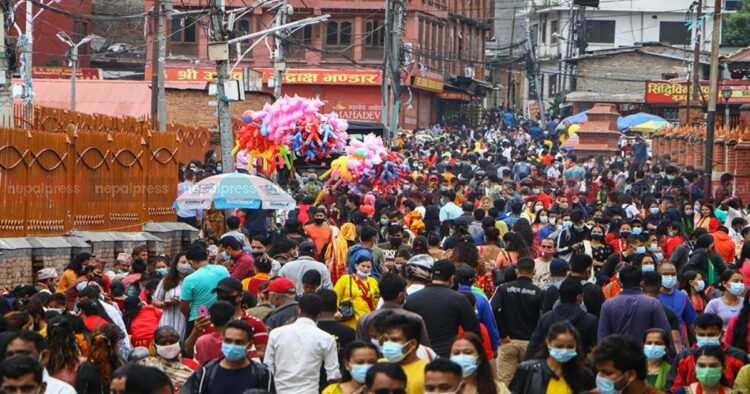Today, thousands of Hindu devotees gathered at the Pashupatinath Temple in Kathmandu, Nepal, to mark the last Monday of the holy month of Shrawan. According to the Pashupati Development Trust, around 115,000 people visited the temple from 4 a.m. to 12 p.m. (local time). To accommodate the large crowd, all four doors of the main temple complex were opened, making it easier for devotees to worship.
Monday, known as “Sombaar” in the Devanagari script, comes from the Sanskrit words “Soma,” meaning Lord Shiva, and “baar,” meaning day. The month of Shrawan, the fourth month in the lunar calendar, is dedicated to Lord Shiva. It is believed that the month becomes even more auspicious if it includes five Mondays, as this increases the spiritual benefits of fasting and worship.
Beginning of the Festival Season
The month of Shrawan also marks the beginning of a series of festivals that will continue for the next seven months until Maghe Sankranti, which falls on the first day of the month of Magh. Fasting on Mondays during Shrawan is a common practice among devotees, as it is believed to cleanse the soul and revitalize the body.
Prashamsha Khadka, a devotee who has been fasting every Monday throughout the month, shared her experience: “The month of Shrawan is now ending, and today is the last Monday of this holy month. This day is very special for me. Fasting on Mondays in Shrawan is believed to bring a good husband and prosperity to the family, so I kept the fast throughout this month.”
Though anyone can observe the fast, it is particularly popular among women, especially those who are unmarried. Unmarried women fast to seek a life partner of their choice, while married women fast for the prosperity, peace, and well-being of their families.
According to Hindu mythology, Lord Shiva drank poison during the churning of the ocean, known as “Samudra Manthan,” which took place in the month of Shrawan. It is believed that Goddess Parvati observed fasting and prayers during this time, which led to her marriage to Lord Shiva.
Devotees often chant “Om Namah Shivaya,” a powerful mantra associated with Lord Shiva, to create positive energy. Some people also recite the Mahamrityunjaya mantra, another sacred chant, during their worship. This spiritual practice brings peace and calm to those who participate.
The observance of the last Monday of Shrawan is a deeply significant event for Hindu devotees, especially those in Nepal, where the Pashupatinath Temple serves as a major center of worship and spiritual devotion.

















Comments